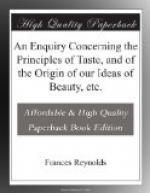3. Letter to A.H. Esq.; concerning the Stage (1698), and Richard Willis’ Occasional Paper No. IX (1698). (OUT OF PRINT)
4. Essay on Wit (1748), together with Characters by Flecknoe, and Joseph Warton’s Adventurer Nos. 127 and 133. (OUT OF PRINT)
5. Samuel Wesley’s Epistle to a Friend Concerning Poetry (1700) and Essay on Heroic Poetry (1693).
6. Representation of the Impiety and Immorality of the Stage(1704) and Some Thoughts Concerning the Stage (1704).
Second Year (1947-1948)
7. John Gay’s The Present State of Wit (1711); and a section on Wit from The English Theophrastus (1702).
8. Rapin’s De Carmine Pastorali, translated by Creech (1684).
9. T. Hanmer’s (?) Some Remarks on the Tragedy of Hamlet (1736).
10. Corbyn Morris Essay towards Fixing the True Standards of Wit, etc. (1744).
11. Thomas Purney’s Discourse on the Pastoral (1717).
12. Essays on the Stage, selected, with an Introduction by Joseph Wood Krutch.
Third Year (1948-1949)
13. Sir John Falstaff (pseud.), The Theatre (1720).
14. Edward Moore’s The Gamester (1753).
15. John Oldmixon’s Reflections on Dr. Swift’s Letter to Harley (1712); and Arthur Mainwaring’s The British Academy (1712).
16. Nevil Payne’s Fatal Jealousy (1673).
17. Nicholas Rowe’s Some Account of the Life of Mr. William Shakespear (1709).
18. Aaron Hill’s Preface to The Creation; and Thomas Brereton’s Preface to Esther.
Fourth Year (1949-1950)
19. Susanna Centlivre’s The Busie Body (1709).
20. Lewis Theobald’s Preface to The Works of Shakespeare (1734).
21. Critical Remarks on Sir Charles Gradison, Clarissa, and Pamela (1754).
22. Samuel Johnson’s The Vanity of Human Wishes (1749) and Two Rambler papers (1750).
23. John Dryden’s His Majesties Declaration Defended (1681).
24. Pierre Nicole’s An Essay on True and Apparent Beauty in Which from Settled Principles is Rendered the Grounds for Choosing and Rejecting Epigrams, translated by J.V. Cunningham.



